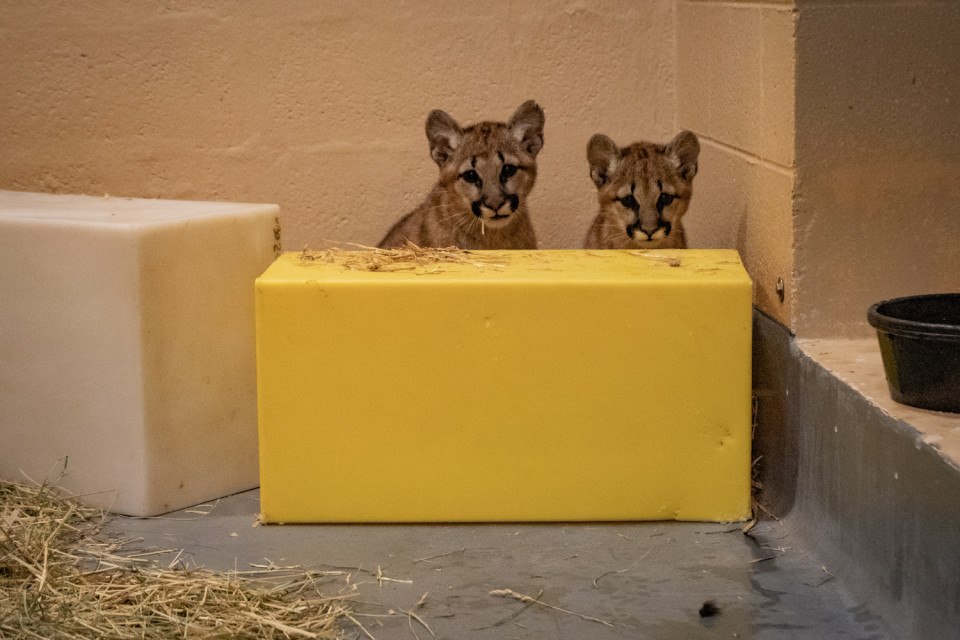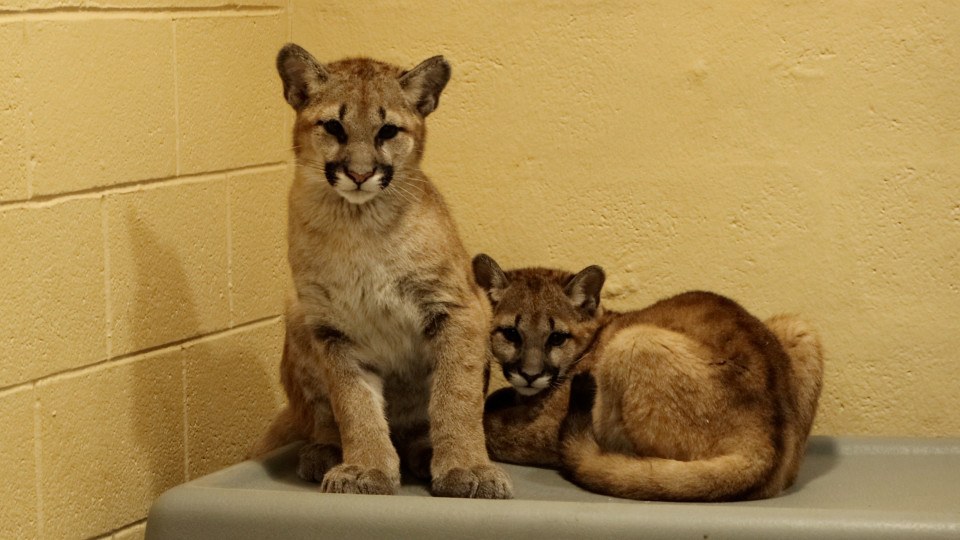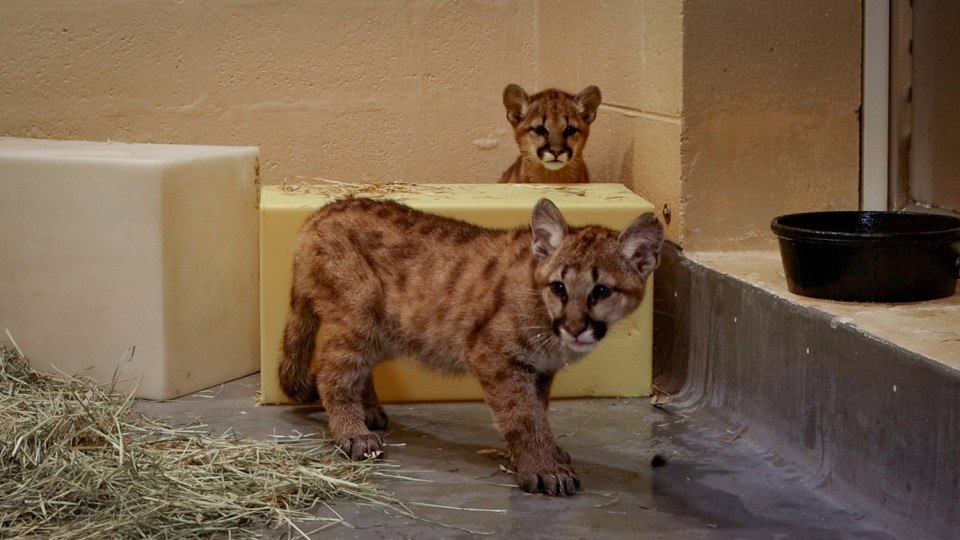Say Hello to the Philadelphia Zoo’s Newest Residents: Two Rescued Puma Cubs
The orphaned cubs were found in Kalama, Washington after they lost their mother. They’ll call the zoo’s Big Cat Falls their forever home.

Elbroch and Olympia, the Philadelphia Zoo’s new puma cubs rescued from Washington / Photography courtesy of Philadelphia Zoo
In addition to being a fun place to stroll around and visit animal friends, the Philadelphia Zoo also leads and supports conservation efforts, both in the field and at the zoo itself. In fact, some animals that are endangered — or even extinct — in the wild have a home in Philly thanks to the zoo’s work.
Behind the scenes, the zoo has rescued and adopted two adorable new residents this summer, and they’re sharing details with us this morning.
Two orphaned puma cubs have flown all the way from Kalama, Washington after being discovered and cared for by the Washington State Department of Fish and Wildlife. (The decision to place them at the Philadelphia Zoo was due to its expertise in caring for this species — they previously rescued puma cubs from South Dakota in 2005.) They won’t make their public debut until later this summer or early fall, but the zoo sent us some sweet photos of the duo.

Puma cubs Elbroch (left) and Olympia
The brother and sister are named Elbroch and Olympia, respectively. Elbroch gets his name from renowned puma researcher Mark Elbroch, while Olympia’s name comes from the state capital of her home state. Elbroch is slightly bigger and is the confident leader amongst the two.
It is believed that their mother was shot by a farmer, and since puma cubs are completely dependent on their mothers when they’re born (they nurse exclusively for three months), they likely would not have survived on their own, vice president of animal well-being Rachel Metz tells us, explaining that “this placement is crucial.” The cubs were 30 to 40 percent underweight for their age, according to the wildlife veterinarians that cared for them in Washington.
For now, they’re in quarantine at the zoo’s on-site animal hospital. “Our keepers have been working in overdrive to come up with plans for socialization and training. Welfare is our top priority so the puma siblings will successfully acclimate to their new home,” says curator of carnivores and ungulates Maggie Morse. The zoo’s veterinary team is providing care, including specialized dietary plans, physical exams and necessary vaccines until they move to their permanent home in the Big Cat Falls section of the zoo.

Elbroch ventures out, while sister Olympia stays behind.
There, they “will serve as ambassadors to educate our guests on the importance of apex predators and the challenges that revolve around humans and our relationships with predators in the wild,” says Metz. While pumas are found across the Americas, and are classified as Least Concern by the International Union for Conservation of Nature, they still face threats like habitat loss, road mortality and disease in the wild. “We can’t wait for the public to meet them and learn their story,” says Morse.


